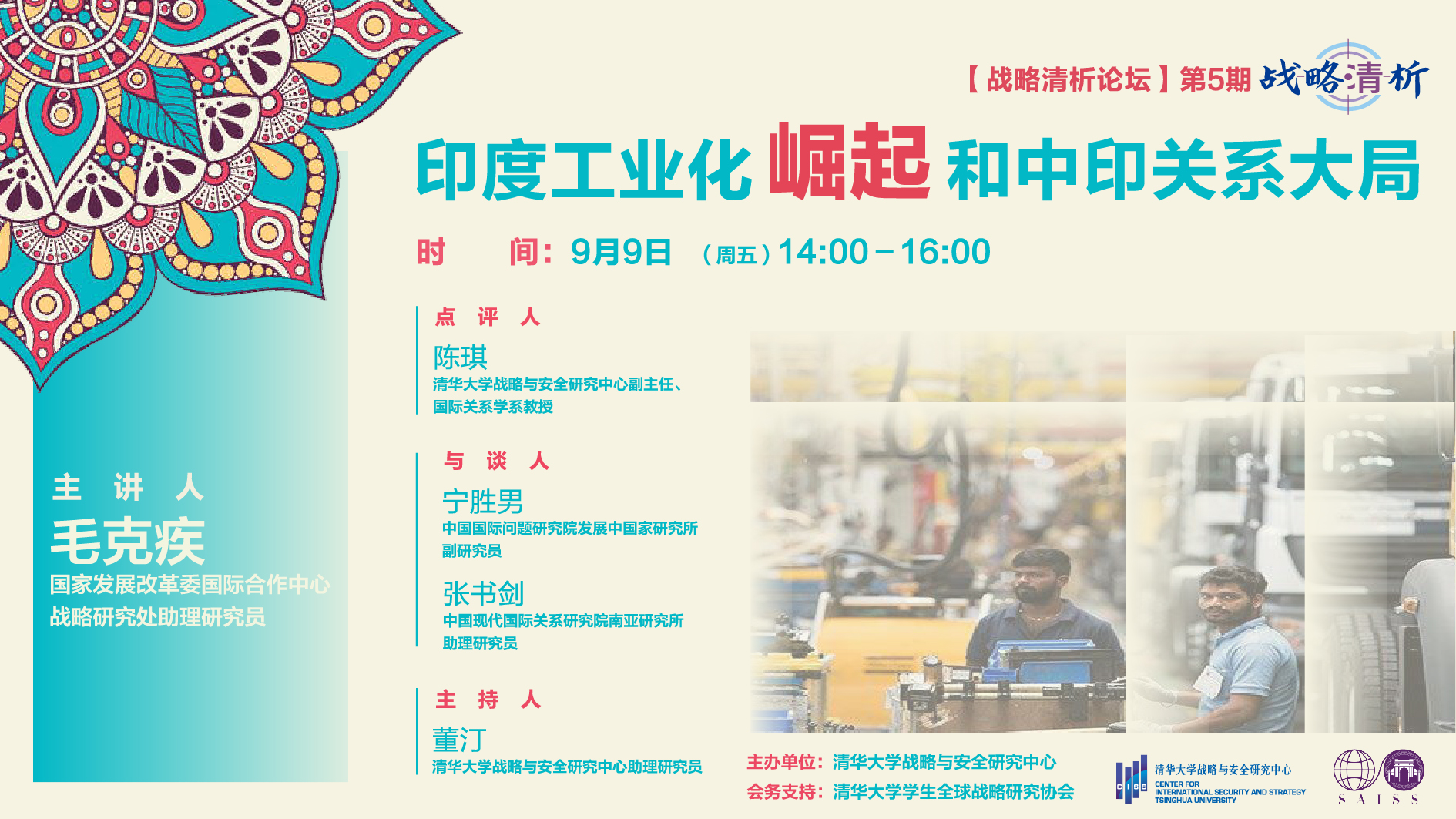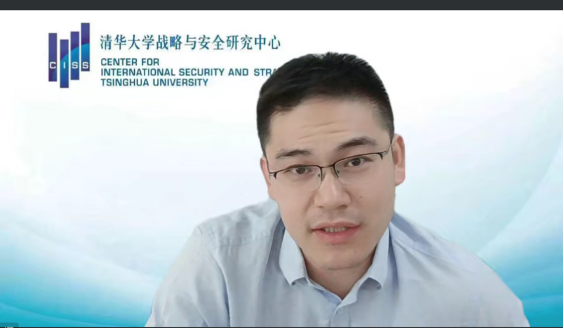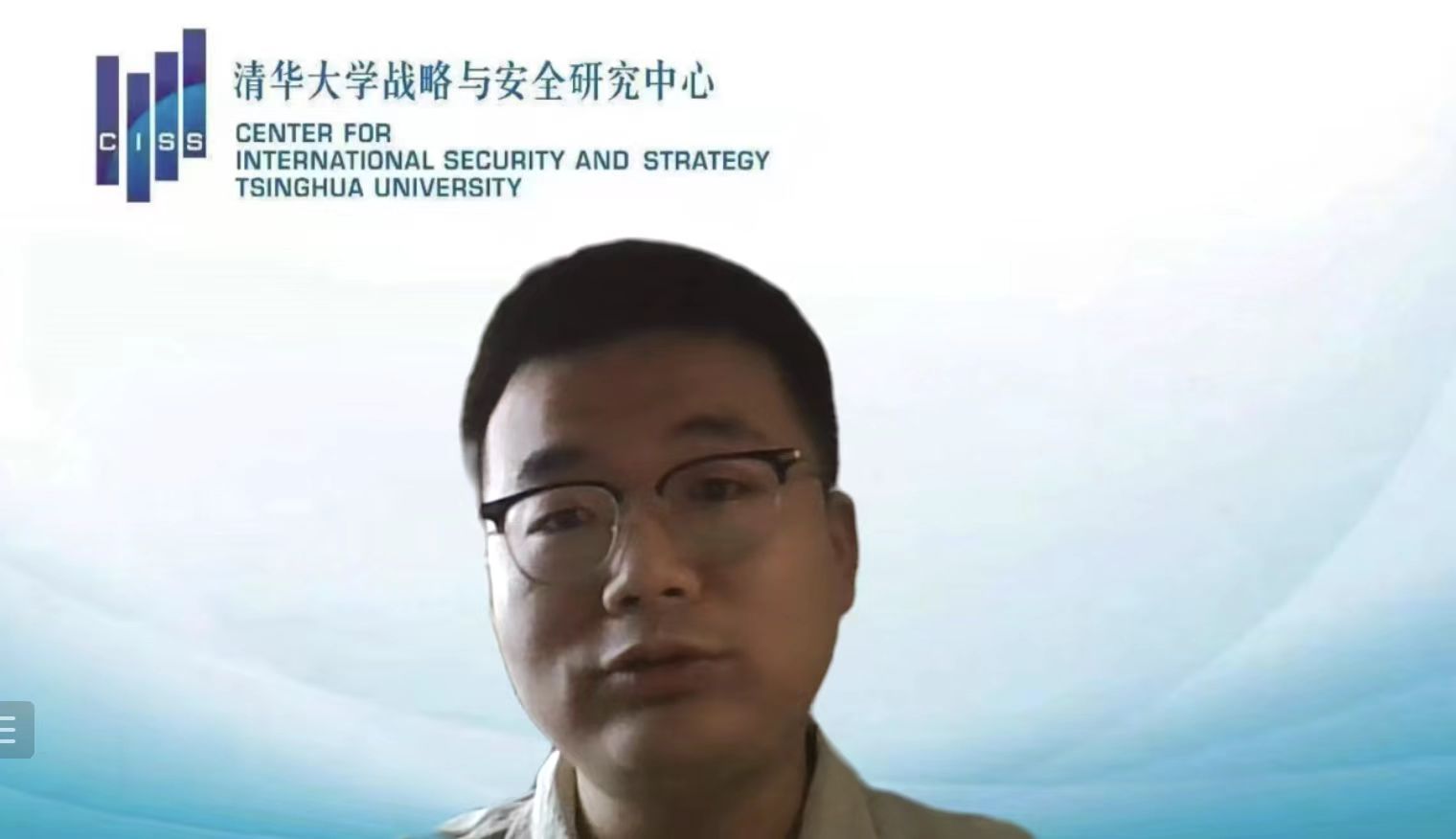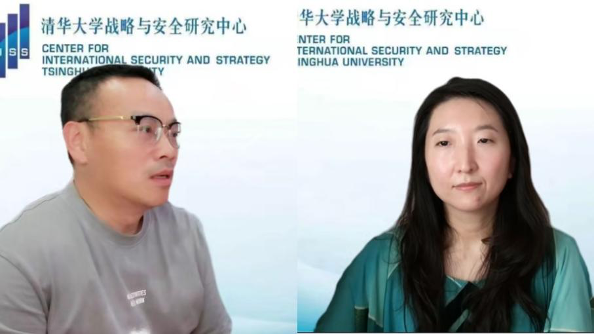
In the afternoon of September 9, the Center for International Security and Strategy (CISS) of Tsinghua University held the 5th StratFocus Forum themed “The Rise of India’s Industrialization and China-India Relations.” Bringing together more than 200 participants, the virtual event featured Mao Keji, research fellow at the Strategic Research Department of the International Cooperation Center of the National Development and Reform Commission, as the keynote speaker. Ning Shengnan, associate research fellow at the Department for Developing Countries Studies, China Institute of International Studies, and Zhang Shujian, assistant research fellow at the Institute of South Asian Studies, China Institutes of Contemporary International Relations, were invited as panelists to discuss India’s political and economic developments, the Modi government’s major power diplomacy, and the latest dynamics of China-India relations. Chen Qi, CISS deputy director and professor of Tsinghua’s Department of International Relations, served as the commentator of the discussion, which was moderated by CISS Fellow Dong Ting.

Mao Keji gave an overview of China-India relations and the rise of India as a neighbor, a major power and a developing country. His core points are as follows. First, India’s industrialization could be the most significant influence on the global geostrategic landscape in the coming decades, and the full integration of its billion-people-level mega-economy into global industrial and supply chains is not only relevant economically, but also politically and historically. Second, India has never been more equipped with the internal and external assets for its industrialization to take off: unprecedented centralization of power, unprecedentedly favorable international environment, and unprecedented zest for industrial advancement. Third, industrialization takeoff is not in the future tense but the present continuous tense for India: its economy under the Modi government has been catching up in many segments and sectors at a staggering speed.

Ning Shengnan and Zhang Shujian then shared their insights. Ning believes that India’s post-industrialization model and structure reflect exactly the current state of developing countries. The reason why its industrialization process is not yet complete, or is still in progress, is that instead of following the traditional path, India has taken on a different path of industrialization by developing a top-end industry to pull its agriculture and industry. This did not allow most Indians to escape poverty or achieve rapid economic growth, so India began to pursue the East Asian model for development, represented by China. But will it be able to realize true industrialization through this? Ning thinks the outlook does not appear promising. First, there is a mismatch between India’s economic base and superstructure. Second, India’s farmers and the majority of its labor force have not seized the residual claim, and there is a lack of bottom-up, institutional innovation to absorb the country’s rural labor force and develop labor-intensive industries. Third, there is in India a myth of Western ideologies and an obsession to outshine Chinese and Western systems, whereas the country’s inherent limitations have been overlooked.

Even if India has the conditions that China had for reform and opening up, it may not be able to achieve an exact replication of the Chinese model, Zhang Shujian added. But future industrial patterns and the international environment will face great uncertainty, and there are more than one path of success for late-developing countries. Despite some pessimistic and negative opinions about India, the country does possess certain strengths that have allowed it to made impressive progress, especially after Modi took office. These strengths include: first, a unified domestic market; second, improved infrastructure; and third, technological advances in the digital economy, which is supported by the Indian tech talent pool overseas. India, after all, has a population of over one billion and is about to overtake China as the most populous nation. These competitive advantages may favorably position India in some global industrial chains, but there is still a long way to go before it turns itself into a mega consumer market that surpasses China or even the US and rises as a true great power across the board, Zhang said.

The presentations were followed by a Q&A session between the speakers and the online audience.
CISS Deputy Director Chen Qi wrapped up the discussion by pointing out that the triple identity of India—a great power, a neighbor, and a developing country—raised by the keynote speaker is quite useful for deciphering the enigmas about India. He stressed that, first, in addition to its identity as China’s neighbor, a regional or potential world power, and a developing country, India is also a very important country in Asia that played the role of a flag bearer of anti-colonial and national liberation in the 20th century. Second, as the challenges a country face in its industrialization or modernization varies with time, the key to whether India will be able to find a path of its own lies in its ability to seize the opportunities of the times to push for institutional changes. Third, should India’s industrialization or modernization be seen as a threat to China? Chen Qi believes that we should not look at the rise of India from a bilateral, zero-sum perspective: when both of the world’s two most populous countries achieve industrialization, the global political landscape will be transformed fundamentally, which will lead to the rise and common prosperity of Asia, a progress that will be of great benefit to the well-being of the Chinese and Indian people and the betterment of the world as a whole. Fourth, a theoretical debate may be needed in the case of India: is mass democracy a prerequisite for industrialization and modernization, or the other way around? Chen believes that India may be trying to press ahead with its modernization and industrialization through the development of mass politics.

About CISS StratFocus Forum
The CISS StratFocus Forum is launched by the Center for International Security and Strategy of Tsinghua University, with the objective of fostering more talents and building an academic community on security and strategy. The forum, which will be held monthly, aims to serve as an academic exchange platform for students and young scholars in the fields of strategy, security, international relations and diplomacy, where they will be invited to discuss international hotspot issues and cutting-edge research in their disciplines.
